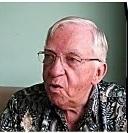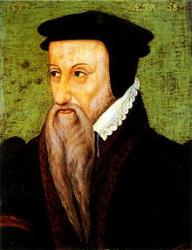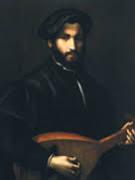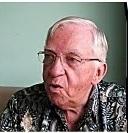1603 - 1680 Person Name: David Denicke (1603-1680) German translator (in part) of "All people that on earth do dwell" in A New Hymnal for Colleges and Schools Denicke, David, son of B. D. Denicke, Town Judge of Zittau, Saxony, was born at Zittau, January 31, 1603. After studying philosophy and law at the Universities of Wittenberg and Jena, he was for a time tutor of law at Königsberg, and, 1624-1628, travelled in Holland, England and France. In 1629 he became tutor to the sons of Duke Georg of Brunswick-Lüneburg, and under father and sons held various important offices, such as, 1639, the direction of the foundation of Bursfeld, and in 1642 a member of the Consistory at Hannover. He died at Hannover, April 1, 1680 (Koch, iii. 237; Bode, p. 58). His hymns, which for that time were in good taste, and are simple, useful, warm, and flowing, appeared in the various Hannoverian hymnbooks, 1646-1659, which he edited along with J. Gesenius (q.v.). All appeared there without his name. Those translated are:—i. Wenn ich die heilgen zehn Gebot. Ten Commandments. Contributed to the Hannover Gesang Buch, 1652, No. 69, as a hymn on the Ten Commandments, in 22 stanza of 4 1., stanzas i.-x. being a confession of sins against them, and stanzas xi.-xxii. a medi¬tation and prayer for God's mercy. Included in Crüger's Praxis pietatis melica, 1661, in Freylinghausen's Gesang Buch, 1714, and recently in a few collections, as Sarnighausen's Gesang Buch, 1855, No. 164, and the Ohio Gesang Buch, 1865, No. 182. It is translated as Almighty Lord of earth and heaven. By C. H. L. Schnette, as No. 206 in the Ohio Lutheran Hymnal, 1880. Stanzas i.-iv. are literal; stanzas v.-vii. seem based on v., vii., xvi., xvii.
Hymns not in English common use:—
ii. Ach treuer Gott! ich ruf zu dir . [Christian Life .] 1st published in the Hannover Gesang Buch, 1652, No. 135, in 17 st. This is translated as:—(1) “My God! I call upon Thy name," by Miss Cox, 1841, p. 177. (2) "Most holy God! to thee I cry," by Lady E. Fortescue, 1843 (1847, p. 69).
iii. Kommt, lasst euch den Herren lehren . [ The Beatitudes,] 1st published in the Hannover Gesang Buch , 1648, in 11 st., No. 133. It may have been suggested by J. Heermann's "Kommt ihr Christen, kommt und höret" (9 st. in his Sontags- und Fest-Evangelia, Leipzig, 1638; Mützell, 1858, No. 94), but has only 3 lines in common with it. In the Nürnberg Gesang Buch , 1676, No. 962, and many later hymnbooks, it begins : "kommt und lasst uns Jesum lehren." It is translated as "Come and hear our blessed Saviour," by J. C. Jacobi, 1722, p. 46. In his 2nd edition, 1732, p. 75, altered and beginning “Come, and hear the sacred story," and thence in the Moravian Hymnbook, 1754, pt. i., No. 469; stanzas x., xi. beginning, "Jesus, grant me to inherit," being repeated in later editions and as No. 423 in J. A. Latrobe's Collection, 1841.
iv. Was kann ich doch fiir Dank. [Praise and Thanksgiving] 1st publised in the Hannover Gesang Buch, 1648, in 8 st., No. 154. Stanza vii. is altered from “Herr Jesu, führe mich," by J. Heermann (Devoti Musica Cordis); Breslau, 1630; Mützell, 1858, No. 57. Translated as "What, thanks can I repay?" by J. C. Jacobi, 1725, p. 46 (1732, p. 147).
v. Wir Menschen sein zu dem, O Gott. [Holy Scripture."] 1st published in the Hannover Gesang Buch, 1659, No. 180, in 10 stanzas. Founded on the Gospel for Sexagesima Sunday—St. Luke viii. 4, &c. Translated as:—(1) "Give us Thy Spirit, Lord, that we," a translation of stanza iii. by J. Swertner, as No. 8 in the Moravian Hymnbook, 1789 (1886, No. 9). (2) "Let the splendour of Thy word," a translation of stanza ix. by J. Swertner, as No. 15, in the Moravian Hymnbook, 1789. (1886, No. 17). [Rev. James Mearns, M.A.]
-- John Julian, Dictionary of Hymnology
David Denicke




